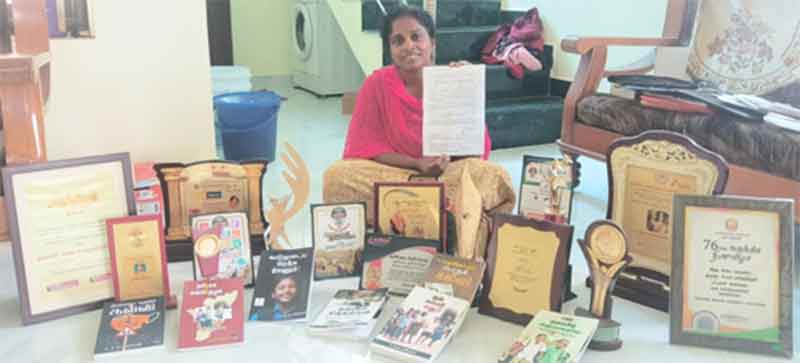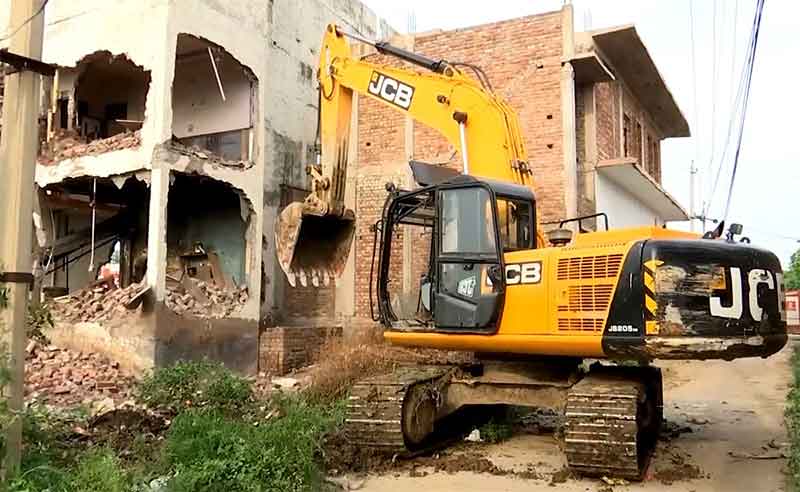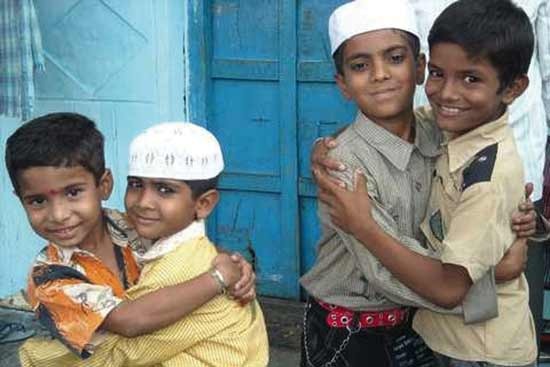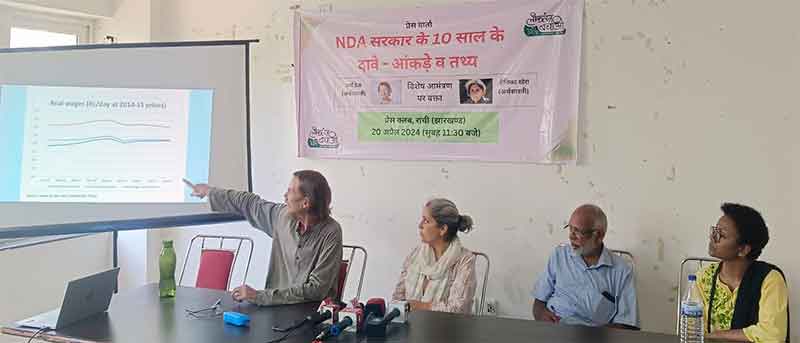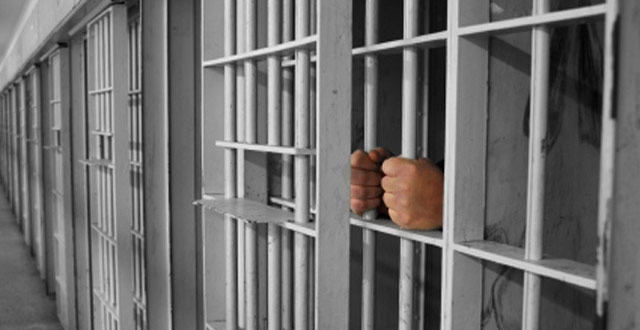
On March 03, 2021, The New Indian Express carried a news headline: ‘Falsely accused of rape, UP man freed after spending 20 years in jail’ – a very good news report indeed; he is free man finally. Then on March 06, 2021, Inquest News carried the following headline: ‘Surat court acquits 122 alleged SIMI members after 19 years of arrest’ – another happy ending; freed at last. Their liberty and freedom are restored! But there was something missing in the news, that is, what about the suffering they endured over these periods. Why should they not be compensated for being wronged by the state? This reminds of the famous quote from Judge William Blackstone: ‘It is better that ten guilty persons escape than one innocent suffer’. However, it seems that is not the concern for most of our courts, perhaps because many don’t recognize that the ’wronged’ must be compensated.
Charles Wegg-Prosser, Chairman of Committee of a report prepared by JUSTICE entitled ‘Compensation for Wrongful Imprisonment’ writes, “One of the conditions of an ordered democratic society is that every citizen should submit himself to the laws of the land in which he lives and to the jurisdiction of those who are authorized to administer and enforce them. ….. , if he is suspected of having committed a criminal offence, he may be arrested and detained in a police station, charged, brought in front of a magistrate and, if the offence is serious, tried in the Crown Court. If he is found guilty and has exhausted any right of appeal, he may exercise then he has to accept the penalty and the consequences which flow from it be the imprisonment, or fine, or loss of reputation, property and livelihood.” He continues by explaining that “All those who participate in the administration of criminal law at various levels, including juries, are acting on behalf of society as a whole. As they are human, it is inevitable that mistakes will be made. There are inherent dangers of error and injustice in the accusatorial system of trial..”. Yes, indeed; mistakes are bound to happen, but there must be remedies to rectify the suffering of those who have been unjustly brought through this distress while under detention or awaiting trial (undertrial).
The United Nation, realizing the seriousness of the issue, initiated the ‘International Covenant on Civil and Political Rights’ which is effective since March 23, 1976. India ratified it and it became effective from July 10, 1979. The Covenant had the following requirements:
Article 9(5) Anyone who has been the victim of unlawful arrest or detention shall have an enforceable right to compensation.
Article 14(6) When a person has by a final decision been convicted of a criminal offence and when subsequently his conviction has been reversed or he has been pardoned on the ground that a new or newly discovered fact shows conclusively that there has been a miscarriage of justice, the person who has suffered punishment as a result of such conviction shall be compensated according to law, unless it is proved that the non-disclosure of the unknown fact in time is wholly or partly attributable to him.
More recently, it was realized that a mechanism was required for determining appropriate levels of compensation for those wronged in this way. Accordingly, the Delhi High Court, in November 2017, directed the Law Commission of India to undertake a comprehensive examination of the issue of relief and rehabilitation for victims of wrongful prosecution and incarceration.
In August 2018, within a year, the Law Commission of India, submitted the report on ’Wrongful Prosecution (Miscarriage of Justice): Legal Remedies’ to Law Ministry, Government of India. Submission letter attached to the report wrote the following: ‘Article 21 of the Constitution provides for protection of life and personal liberty of the citizens. The infringement of a fundamental right due to police and prosecutorial misconduct invokes State liability. The Constitution, which secures the fundamental rights, is silent about grant of compensation by the State for infringement of such fundamental rights. Even under other remedies available under the existing system, the mechanism of compensation for miscarriage of justice resulting in wrongful prosecution remains complex and uncertain’.
The report notes that 67.2% of prisoners in Indian prisons were awaiting trial (people who have been committed to judicial custody pending investigation or trial by a competent authority), based on data provided by Prison Statistics India – PSI. This is the highest proportion of prisoners awaiting trial in the world, the 16th highest (out of a total of 217 countries) and 5th highest in Asia, while the convicts account for only 32%. The report also notes that 25.1% of the total awaiting trial had spent more than a year in prison; 17.8% spent up to 1 year in prison awaiting trial. It noted that 64.8% of those awaiting trial spent more than 3 months in the prison. The report acknowledged that ‘undertrials spent a substantial period of time awaiting trials/ judicial determination of their case. This delay and waiting becomes a graver miscarriage of justice when the person is wrongfully accused and incarcerated pending trial/proceedings, which he should not have been subjected to in the first place.
The report recommends the ‘enactment of specific legal provision for redressal of cases of miscarriage of justice resulting in wrongful prosecution’. It also adds that ‘the injustice caused to the innocents needs to be redressed within the framework of rights and not ex gratia by the State. The other being that there needs to be an established legislative process according a transparent, uniform, efficacious, affordable and timely remedy for the loss and harms inflicted on the victims on account of wrongful prosecution’. It recommends the establishment of ‘special courts’ to deal with claims within a prescribed time.
It would have been better if the Law Commission would have recommended that in cases where a person is wronged, the court must compensate the wronged party within the judgement pronounced. Consider the case of Mohd. Jalees Ansari & Ors. V Central Bureau of Investigation, ‘when the victim’s brother was asked to file a Compensation Petition, he said that we are financially and mentally drained and have no will to fight another dubious legal battle; we sacrificed everything we had to get my brother home’. Or consider another case, which is that of Nisarudin, penalized under TADA in 1993, but later exonerated by the Supreme Court on May 11, 2016 (23 years in detention, he was 19 when arrested). His financial condition prevented him from filing a plea for compensation.
Consequently, recommending the victim to approach a ‘special court’ for another round of legal battle is not prudent.
While recommending the compensation, the report adds the following ‘at this point, it does not appear feasible for the law to lay down a fixed amount of monetary compensation to be paid, the law will include the guiding principles/factors that a Special Court will be required to consider while determining the compensation including the amount of monetary compensation’. Compensation can include both ‘pecuniary and non-pecuniary assistance to effectuate the rehabilitation of these victims of wrongful prosecution into society’. I believe, if the ‘minimum monetary compensation’ guideline had been included in the report, this would have greatly enhanced the value of this report.
I make the following recommendation for calculating the equitable minimum compensation for wronged individuals:
- The calculation must be equated to a day’s value so that if a person is jailed for a year it can be multiplied by 365 or equivalently as per his actual number of days spent.
- I would propose the use of daily wage recommendation published by Ministry of Labour & Employment, Government of India.
- For the ease of judicial process in setting minimum compensation, I would propose the use of wage recommendation for unskilled industrial worker category B. This would be modest and fair to all.
- So, the minimum compensation for a day is given below, both in number and percentages. The use of percentages is better for future use as government recommendation is revised from time to time. I have not used dearness allowance; instead, I propose the use of average inflation of 5% to be added at beginning of each new year. So, the minimum compensation for a day must read as given below:
| Minimum Daily wage | ₹ 437.00 | Percentages | |
| Loss of Goodwill | ₹ 100.00 | 23% | |
| Loss of Comfort | ₹ 75.00 | 17% | |
| Mental stress | ₹ 150.00 | 34% | |
| Health Care | ₹ 75.00 | 17% | |
| Legal Fee | ₹ 200.00 | 46% | |
| Rehabilitation | ₹ 250.00 | 57% | |
| Daily Compensation | ₹ 1,287.00 | x365 (year) | ₹ 469,755.00 |
5. Assuming that, for the coming two years. the government’s daily wage recommendation remains constant, then the minimum compensation for a day in accordance with the 5% inflation rate would be as given below:
| Year 2 Inflation 5% | Day ₹ 1,351.35 | Year ₹ 493,242.75 |
| Year 3 Inflation 5% | Day ₹ 1,418.92 | Year ₹ 517,904.89 |
6. Thus, if anyone has spent 3 years under wrongful conviction, his compensation should be a minimum of₹ 469,755.00 (year 1) + ₹ 493,242.75 (year 2) + ₹ 517,904.89 (year 2) totalling to be ₹ 1,480,902.64
7. In addition to the above compensations, the Government must award ₹ 50,000 for each completed year of incarceration as an apology.
8. In case of proven frame-up by authorized agencies (such as Police, CBI, Tax officer, narcotics, anti-terror, etc), then the Government must add ₹ 500 a day to the wronged person’s compensation in addition to above minimum compensation. This additional amount must be deducted/ taken from the concerned officer or officers.
9. For those bailed out, their minimum daily wage, loss of comfort, health care and rehabilitation, can be deducted, instead, ₹ 115 can be added towards transportation, food, and daily absence from work while calculating daily minimum compensation.
10. The calculation must be from the date the wronged individual leaves prison.
11. It is important that the compensation is pronounced along with verdict.
A transparent and assured compensation process will encourage law firms and lawyers to take up lawsuit on a ‘no win, no fee’ basis.
One must not forget that there are other consequences of wrongful convictions and detentions:
- The real culprit is still at large.
- Possibility of more crime by the real culprit.
- Loss of Income from TAX (from wronged individual)
- Extra cost on the management of prison.
- Extra cost on food in prison.
- Extra cost on Laundry.
- Extra cost on Maintenance and hygiene of prison.
- Courts’ time lost adding to further delay in other cases.
- Missed social contribution and innovation from the wronged individual.
- Possibility of developing a criminal mindset in wronged individual.
Compensation would mean that the government, judiciary and society exercise care when an individual is wronged. However, India expressed some reservation regarding compensation for wrongful detention in the International Covenant on Civil and Political Rights. Consequently, Indian courts have been awarding compensation to some and denying it to many others. Some examples are given below of inconsistencies in compensation decisions:
- In 2018, the Supreme Court awarded Nambi Narayanan, former Indian Space Research Organisation (ISRO) scientist, compensation of ₹ 50 lakhs (5 million). An additional ₹ 10 Lakh (1 million) was recommended by the NHRC. In August 2020, the Kerala Government gave ₹ 1.3 crore (13 million) additional compensation.
- Ram Lakhan Singh was awarded ₹ 10 Lakh (1 million) for spending 11 days in Jail and for pursuing the case over 10 years.
- SI was awarded ₹ 5 Lakhs (half million) in compensation for humiliation and illegal detention for 30 minutes – August 01, 2000.
- The Bombay high court’s (HC) Aurangabad bench directed the state government to compensate two men with the sum of ₹ 50,000 each as they had been illegally detained for six days in 2013.
- Rudal Shah was unlawfully detained for 14yrs. The Supreme Court awarded ₹30,000 as compensation.
- Gopal Shete, wrongfully convicted of rape, was exonerated after ‘seven years’, no compensation was made. His wife had remarried, and his daughters had to live in an orphanage. He was earning ₹ 50,000 at the time of arrest, but is now seeking means of reasonable earning s.
In July 2016, a bench comprising of Justices Dipak Misra and R Banumathi while hearing the plea for compensation on Akshardham case of 2002said it would set a ‘dangerous precedent’ if the acquitted persons were allowed to claim compensation for their “wrongful’ arrest.
Colin Gonsalves, a noted human right activist asks ‘why should it not be ₹ 1 crore (10 million) a year for taking a person’s liberty away with mala fide intent’ (referring to Akshardham case) in an interview to Smitha Nair, published on February 14, 2021.
Considering the above cases, it appears very obvious that the compensations are very arbitrary and, in some cases, unfair. Hence uniformity and transparency in compensation is urgently required. The above model is just suggestive and I believe it can be imitated in any country where the minimum daily wage is published by governments. It is important that the judiciary must be perceived as consistently fair and just to all in its compensation judgments.
Dr Kaleem ALAM King Abdulaziz University
GET COUNTERCURRENTS DAILY NEWSLETTER STRAIGHT TO YOUR INBOX




